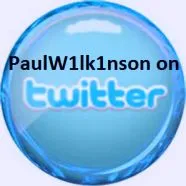I debated between calling this “The Lost art of Concision” versus “The Developing Art of Concision.” First, a definition is in order:

Therefore, when I speak of the concision as a developing art, I mean the necessity of being able to put ideas across in a short-and-to-the-point manner; something you need in a world of soundbites. Last year I wrote,
It was Noam Chomsky who introduced me to the idea of concision. I’ve taught it as, “You’re selling your car through a media which is charging you $1.50 per word. How do you describe your vehicle persuasively, but keep the cost down?”
But when I speak of it as a dying art, I’m thinking specifically of the migration of many bloggers from what I’m doing now — typing/writing words — to podcasting; and to Twitter’s decision to gift everyone with 140 additional characters on Tuesday evening.
Twitter is obsessed with the number 140. (Originally videos were limited to 2 minutes and 20 seconds, which is 140 seconds.) The new length, 280 characters, doubles this even though 160 would have been a nice gift in itself. Or 180 or 200. 280 seems long, it seems to rob Twitter of it’s basic character, heretofore. But I didn’t always feel that way. When I joined, I wrote:
I can’t say what I have to say in 140 characters.
In case you missed it, I tend to write long.
But the word concision has come up on this blog somewhat frequently. Earlier this year I wrote,
I have for a long time questioned how much time sermon has left. With all due respect to those of you currently honing your homiletic craft at either the undergraduate or graduate level, I really think that this particular form is destined to go the way of the CD or the land line phone. I’m not saying there aren’t some great preachers out there; I spend my evening hours listening to sermon after sermon online. But that’s me. For others there are a host of reasons why sermon doesn’t work. ADD or ADHD comes to mind. Some sermons are simply too long. Some say it’s just not how they learn. Some claim that high profile Christian pastors have simply set the bar too high and average pastors can’t achieve the quality that is now widely available online. Others would argue that we’ve become accustomed to media bursts, sound bites, and increased concision.
The Bible itself is amazingly concise. Readers are often fascinated to learn how narratives they had heard about — Creation, Jonah, The Prodigal Son — when they actually got around to reading them, were expressed in a very limited fashion. In an article about Christ’s ascension the subject was raised (pun intended):
A reader wrote, “We’re told… at his ascension that he will come again in like manner as they have seen him go.” But what do we know about that manner? How long were the disciples staring as he rose into the sky? Was there a low cloud ceiling that day? The Bible’s tendency to brevity and concision makes me think that perhaps God didn’t just beam Jesus up, but his ascension may have have been more prolonged; a vertical processional to heaven.
It also came up in a piece on diminishing attention spans:
You see this in the way books and articles in periodicals are written now; in fact you’re seeing it in the piece you’re presently reading. Pick up an older book — say 60 years or more old — and you might find an entire page consisting of a single paragraph. You might even find several consecutive pages consisting of a single paragraph. (I’m told that some chapters of Paul’s epistles were often a single sentence in the original Greek, no doubt a weaving of dominant and subordinate clauses that the reader of that time would follow easily.)
Today we use paragraph breaks to keep the content flowing; to keep the eyes moving on the page; to force us writers to adopt a greater degree of concision. Our writing is also broken up by more numbered or alphanumeric lists, by bullet points, by sub-headers and by pull quotes. (We use them often at Christianity 201, where the devotions are by definition somewhat longer, and we want to make what would otherwise be an entire page of text more interesting.)
The trend towards podcasting is actually surprising, given the push toward brevity in a bullet-point world. Have you ever thought of what a full transcript of your favorite podcast would look like printed out? It would run for pages and pages. A blog post on a similar topic would be less than 2,000 words, and easily digested in under 7 minutes. (Or spoken in 15 minutes. Compare word length to spoken time at this speech minutes converter.) We wrote about podcasts on an article on the trend from literacy to orality:
Inherent in podcasting is the right to ramble. Listeners get the nuance that’s missing in a traditional blog post (and this is one of the great liabilities of email) but they have to take the time to wade through the host(s) stream-of-consciousness narration. There’s no concision, a quality that decades ago Noam Chomsky had predicted would be, moving forward, a key asset in communications. A great concept that’s probably a seven or eight paragraph blog post instead becomes a 53 minute podcast. Andy Warhol’s comment that “In the future everyone will be famous for 15 minutes;” might be modified to, “In the 21st century, everyone will have their own talk show or be the host of their own radio station.”
As Christian communicators however, we have to be careful when we try to reduce to mystery or complexity of the gospel to a concise motto, slogan, tag line or formula. In an article titled What is the Gospel, I wrote,
I also think that, when considered in the light of the Jewish appreciation of the scriptures as a great jewel that reflects and refracts the light in infinite ways each time we look at it, the idea of trying to formulate a precis of the Bible is to venture into an endless and perhaps even frustrating mission. What would Jesus think of trying to consolidate something so great, so wide, so high, so deep into a finite number of words? Concision is great, but maybe it doesn’t work here.
Anyway Twitter, thanks for the extra characters; but I earnestly hope I have the wisdom to not overuse them. Readers, it’s a busy world out there; keep it short!

Yes, today I basically quoted myself throughout this article. To further embellish Chomsky’s teaching on concision would have made the article…well…not so concise.
For those mystified by the final graphic image, TL/DR stands for Too long, didn’t read.
For further reference in thinking about the difference between podcasting and blogging, this article is less than 1,100 words; you can halve the minutes in the above example.
 In an age when we are bombarded with voices and information, it’s easy to miss the essential core of what someone is trying to say. I often find myself going back over sentences, paragraphs and pages to make sure I get the gist of what the writer intended, and am currently re-reading a book I recently finished because I want to make certain I’ve internalized the writer’s message.
In an age when we are bombarded with voices and information, it’s easy to miss the essential core of what someone is trying to say. I often find myself going back over sentences, paragraphs and pages to make sure I get the gist of what the writer intended, and am currently re-reading a book I recently finished because I want to make certain I’ve internalized the writer’s message.












